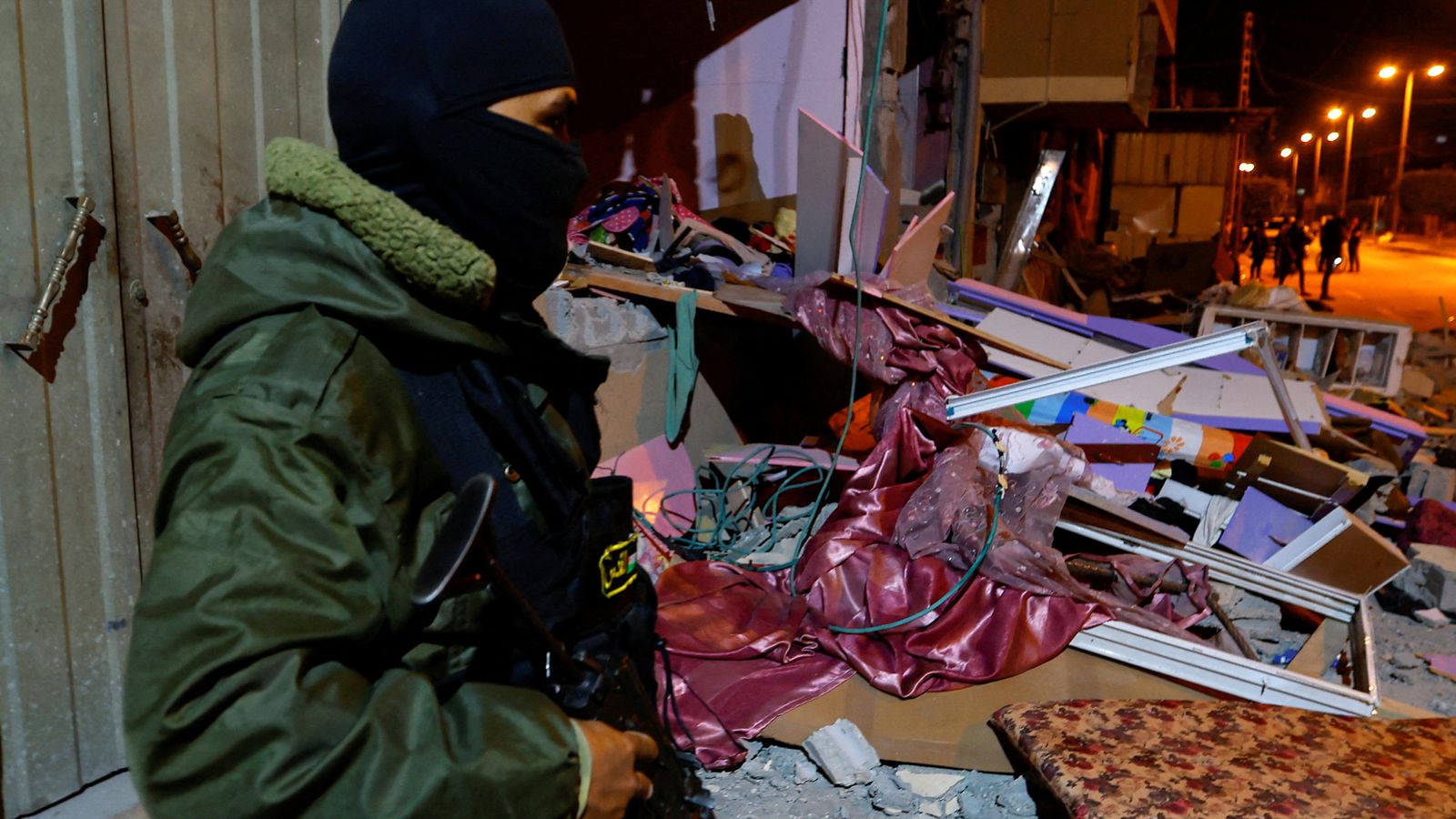Israel has bombed the Gaza Strip overnight, killing three senior commanders of the Palestinian Islamic Jihad (PIJ) group.
Various sites linked to the organisation were also taken out, including a rocket factory and a facility to produce concrete for tunnels.
At least 12 people were killed and 20 injured, according to the latest figures from the Palestinian health ministry. Islamic Jihad says the dead also include the wives and some of the children of the three commanders.
A spokesman for the Israeli Defence Forces (IDF) described the targets as “kingpin terrorists” and said they were “aware of some collateral” in reference to civilian deaths.
Forty aircraft were used in the operation, which started just after 2am and has been named ‘Shield and Arrow’.
The strikes hit the top floor of an apartment building in Gaza City and a house in the southern city of Rafah
The IDF confirmed that the commanders killed were Khalil Bahitini, who ran PIJ operations in northern Gaza, Tarek Azaldin who allegedly co-ordinated attacks in the West Bank from Gaza and Jahed Ahman, a senior figure in the group’s military council.
Two women killed in West Bank shooting after Israeli airstrikes hit Lebanon and Gaza
Israel shoots down rockets fired from Gaza after deadly commando raid on flashpoint West Bank town of Jenin
Gaza fire killed 21 people from same family during birthday party
With 12 dead, including women and children, this has the potential to escalate.
The IDF says the strikes are only targeting Palestinian Islamic Jihad, but actions already taken, including the approval to evacuate of border towns, suggest they are ready for a conflict.
The operation was signed off by Israel’s Prime Minister Benjamin Netanyahu last Friday, but it was delayed once because of weather and again when the targets weren’t in place. The strikes took everyone by surprise – as of breakfast time on Tuesday morning, there was yet to be a response from Islamic Jihad but it’s likely that will come after the funerals later today.
Key to what happens next will be the response from Hamas. The group, which controls the Gaza Strip, has released a statement condemning the attacks but stopped short of saying it will retaliate.
Last year, a similar operation against Islamic Jihad resulted in three days of fighting. On that occasion Hamas chose to remain on the sidelines but might feel under pressure, particularly from Iran, to respond this time.
Mr Netanyahu has been under increasing pressure to take a more pro-active counter-terrorism policy, striking targets first rather that acting retrospectively. Right wing voices in his government have been advocating for a more aggressive military posture in the West Bank and Gaza, and this appears to be just that.
The funerals are expected to take place on Tuesday morning.
Israel is readying itself for a response – schools near the Gaza border will be closed today, residents have been ordered to remain close to bomb shelters and the approval has been given for some villages to be evacuated.
Outdoor gatherings have been banned and the Erez crossing point between Gaza and Israel closed.
Reservists have been put on standby and Israel’s Home Command is ready for further action.
The strikes came as a surprise, and Islamic Jihad is yet to respond, but it follows a brief but intense 24-hour period last week when nearly three dozen rockets were fired towards Israel following the death of a high-profile Palestinian from hunger strike in jail.










